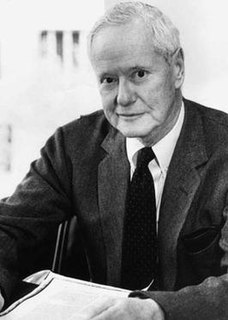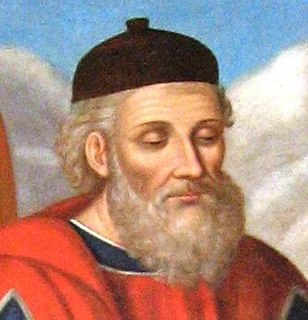A Quote by John Stuart Mill
He who cannot by his labor suffice for his own support has no claim to the privilege of helping himself to the money of others. By becoming dependent on the remaining members of the community for actual subsistence, he abdicates his claim to equal rights for them I other respects.
Related Quotes
Only when he has published his ideas and findings has the scientist made his contribution, and only when he has thus made it part of the public domain of scholarship can he truly lay claim to it as his own. For his claim resides only in the recognition accorded by peers in the social system of science through reference to his work.
Patriotism, or the peculiar relation of an individual to his country, is like the family instinct. In the child it is a blind devotion; in the man in intelligent love. The patriot perceives the claim made upon his country by the circumstances and time of her growth and power, and how God is to be served by using those opportunities of helping mankind. Therefore his country's honor is dear to him as his own, and he would as soon lie and steal himself as assist or excuse his country in a crime.
Such was the end of Philip (II, king of Macedonia) ...He had ruled 24 years. He is known to fame as one who with but the slenderest resources to support his claim to a throne won for himself the greatest empire among the Hellenes (Greeks), while the growth of his position was not due so much to his prowess in arms as to his adroitness and cordiality in diplomacy.
Francis of Assisi tells us we should work to build peace. But there is no true peace without truth! There cannot be true peace if everyone is his own criterion, if everyone can always claim exclusively his own rights, without at the same time caring for the good of others, of everyone, on the basis of the nature that unites every human being on this earth.
You may give a piece of bread to a hungry person, and when the cravings of hunger return some one else must administer to his wants again; to put that person in a position to earn his own subsistence is true charity; in this way you direct his feet in the path of true independence, he is then only dependent on his own exertions and on the blessings of his God.
And often he who has chosen the fate of the artist because he felt himself to be different soon realizes that he can maintain neither his art nor his difference unless he admits that he is like the others. The artist forges himself to the others, midway between the beauty he cannot do without and the community he cannot tear himself away from.
The only proper, moral purpose of a government is to protect man's rights, which means: to protect him from physical violence - to protect his right to his own life, to his own liberty, to his own property and to the pursuit of his own happiness. Without property rights, no other rights are possible.
Man—every man—is an end in himself, not a means to the ends of others; he must live for his own sake, neither sacrificing himself to others nor sacrificing others to himself; he must work for his rational self-interest, with the achievement of his own happiness as the highest moral purpose of his life.





































